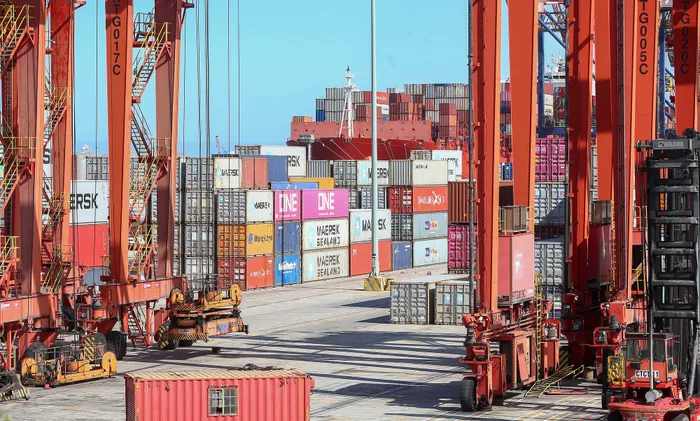Business Leadership SA slams Transnet's new wage agreement as leadership failure

Business Leadership South Africa (BLSA) has criticised Transnet’s new wage agreement with unions
Image: Leon Lestrade/ Independent Newspapers
Business Leadership South Africa (BLSA) has criticised Transnet’s new wage agreement with unions, calling it a failure of leadership and warning that it undermines the country’s economic recovery.
Last week IOL reported that Transnet concluded a three-year wage agreement with its recognised unions, SATAWU and UNTU, securing a 6% annual salary increase for workers over the next three years.
The deal also includes increases to key benefits such as pension contributions, medical aid, housing allowances, and the 13th cheque.
According to the state-owned freight and rail company, the deal came after the "conclusion of a conciliation process led by the Commission for Conciliation, Mediation, and Arbitration (CCMA)".
BLSA President Busiswe Mavuso criticised Transnet's decision to provide an above-inflation increase to workers, saying that the agreement overlooks the country's weak economic growth, rising debt, and Transnet's poor performance record.
"I was astounded to see the news last week of Transnet’s capitulation to union strike threats, agreeing to give workers 6% pay rises in each of the next three years. This agreement represents a failure of leadership on both sides – militant unions holding the country hostage with strike threats, and management caving to their demands without a fight," Mavuso said.
She added that the increases come at a time when inflation is running at 2.7%, and the economy is expected to grow by only 1.4% this year.
“While South African businesses slash costs and workers face retrenchments, Transnet workers will get pay rises that are double the inflation rate, funded by taxpayers already struggling to make ends meet.”
Mavuso also pointed to Transnet’s operational inefficiencies, citing an estimate from Professor Jan Havenga of Stellenbosch University that poor logistics performance is costing the South African economy R1 billion per da.
In a letter following the wage agreement reached last week, SATAWU defended the agreement by emphasising that it accepted the CCMA’s proposal for a 0.5% increase in the third year, which would raise the final year’s increase to 6%.
“Our correspondence dated 21 May 2025 stated that the union was prepared to accept the additional 0.5% increase,” the union said.
SATAWU also argued that the final agreement reflected existing provisions and legal frameworks already in place between Transnet and organised labour.
"When comparing the original retrenchment clause and the one contained in the final wage offer, it is evident that there is no significant difference, but only a reformulation of existing provisions. The only notable amendment in the final collective agreement is the additional 0.5% increase in Year 3".
In a statement after the agreement, the United National Transport Union (UNTU) stressed that the new agreement protected jobs.
"Importantly the new agreement places a strong emphasis on job security and includes a firm non-retrenchment clause which was one of the key demands tabled by UNTU in this process."
Get your news on the go, click here to join the IOL News WhatsApp channel.
mthobisi.nozulela@iol.co.za
IOL Business
Related Topics: